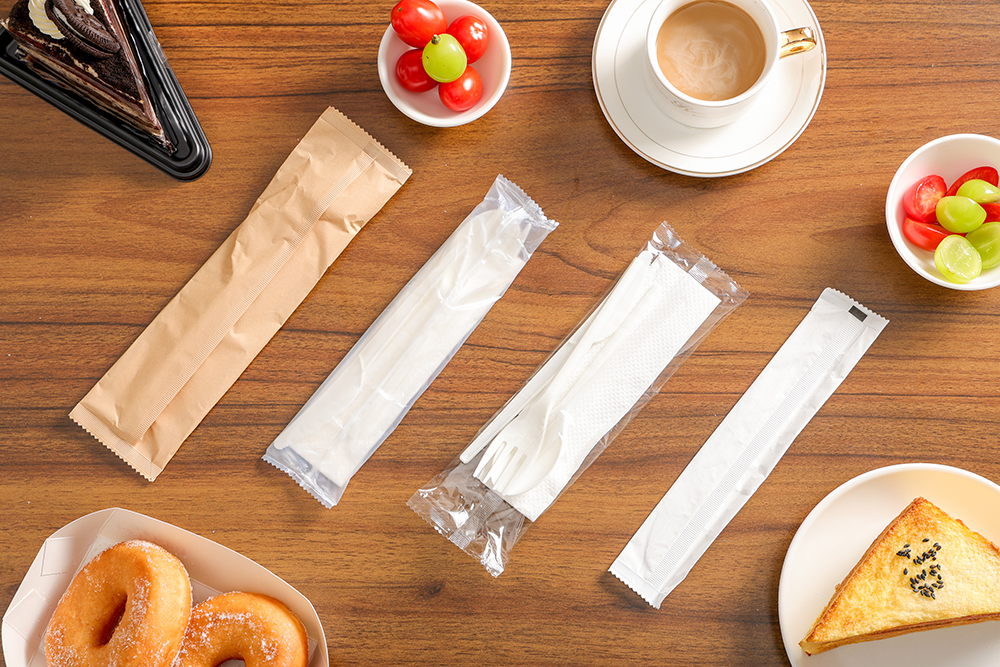Compostable tableware is a great way to reduce plastic waste and protect the environment. But how do you know if your appliances are actually compostable? Here are some tips to help you correctly identify and use compostable utensils.
1. Check the certification label. The most reliable way to tell if your appliances are compostable is to look for a certification label from a reputable organization, such as BPI (Biodegradable Products Institute) or CMA (Compost Manufacturing Alliance). These labels indicate that the utensils have met compostability standards and will break down in a commercial composting facility within a certain period of time. If you don’t see a certification label, you can contact the manufacturer or supplier and request proof of compostability.
2. Check the material and color. Compostable utensils are often made from plant-based materials such as cornstarch, sugar cane, bamboo or wood. They are usually white, beige or brown in color and have a matte or natural finish. Avoid utensils made from petroleum-based plastics such as polystyrene, polypropylene or polyethylene. These materials are not compostable and will persist in the environment for a long time. Also, avoid utensils that are coated in wax, plastic, or metal, or have bright colors or glossy finishes. These additives may interfere with the composting process and contaminate the compost.
3. Use them correctly. Compostable appliances are designed for short-term use and then disposed of in a commercial composting facility. They are not suitable for home composting because they require high temperatures and specific conditions to decompose. They are also not recyclable because they can contaminate recycling streams and damage recycling equipment. Therefore, compostable appliances should only be used if you have access to a commercial composting service or dumpster. If you don’t have access to a commercial composting facility, you should opt for reusable utensils.
Compostable tableware is a good alternative to plastic tableware because they reduce waste and greenhouse gas emissions. However, you need to make sure your utensils are truly compostable and that you dispose of them in the right way. By following these tips, you can enjoy compostable utensils while helping the environment.
